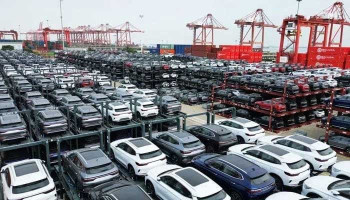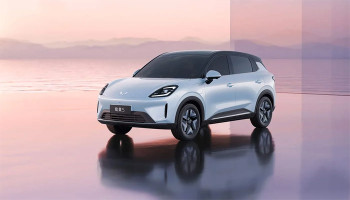
Geely Holding Group, a leading Chinese automobile manufacturer, announced that it has launched 11 low-earth orbit satellites on Saturday.
The batch of these 11 satellites is the second dispatch of the company, as the company aims to broaden its capacity to enhance the navigation system in autonomous vehicles.
According to the company, the liftoffs of satellites were carried from the Xichang Satellite Launch Center in the southwestern province of Sichuan.
Read more: Japan becomes fifth nation to achieve a soft lunar landing
Geely said that it plans to take the toll of such satellites to 72 by the year 2025, with an utmost ambition to have a constellation of 240 satellites, Reuters reported.
The satellites will not only ensure a greater extent of accuracy for the positioning of self-driving cars, but their network will also be utilised for other business operations in the realm of technology, such as connectivity to the consumer electronics sector.
The company said its satellites are equipped with AI-backed remote sensing functions, ensuring 1-5 meter (3.2-16.4 ft) clear high-resolution remote sensing imaging.
Although the satellite networks in China rest in the grasp of its military, however, the government opened the window of opportunity for private investors for the space industry in 2014.
Since then, private businesses, some with support from local governments, have quickly penetrated the industry. Most of them are concentrating on manufacturing satellites, while others are trying to develop small launch vehicles such as reusable rockets.
Beijing's latest five-year plan for 2021-2025 includes a proposal for a comprehensive satellite network for communication, remote sensing, and navigation. The country currently has over 400 satellites in orbit, including those owned by commercial entities, as reported by state media.
















